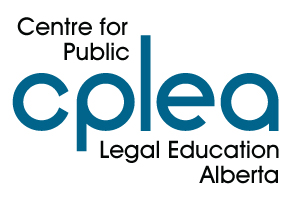This tipsheet give an outline of how to tell if the legal information you are looking at is jurisdictionally correct, up-to-date, and provided by a reliable source,
This section provides information about the process of dealing with a legal dispute.
- Without a lawyer? Will you do it yourself? Check out the many helpful resources listed under Self-representation and Choosing and Working with a Lawyer
- Is going to court the best way to resolve your dispute? See Alternatives to Court for options
-
How do you gather the information you will need to prepare your case? See site sections: Legal Definitions and Legal Research Tools. You may also find background material in the section Learn More About...
-
Where should you present your case? See Courts and Tribunals to learn about the various courts .
-
What are the steps and rules involved in going to court? See site section: Court Procedures
-
What about the required paperwork? What forms must be completed and submitted? See Accessing Law-related and Court Forms
- The judge did not rule in your favour. Can you take your unsuccessful case to the next level? See Filing an Appeal
Use the "Preparing for Court" menu on the left to select the topics you want to know more about.
CPLEA Suggested Resources
Not sure where to begin finding answers to your questions. Get started with our suggested resources. See additional resources below for more information.
Alberta Resources
An instructional video from the Canadian Bar Association Alberta branch demonstrates the basics of procedure in civil court for non-lawyers. It is about 25 minutes in length, and uses common types of courtroom disputes to explain the kinds of evidence you may need for your case as well as how to organize and present that evidence to the judge.
This group of programs and services is offered by Alberta Justice in collaboration with the courts of Alberta. This webpage provides general information for those who are representing themselves in a family matter in either Court of King's Bench or The Provincial Court of Alberta.
This service is for people who don’t have a lawyer. Use it to:
- prepare for court
- navigate your family law matter through the Provincial Court
- discuss your issues, explore your options and get you referrals
- get a court order prepared and filed with the Court of King’s Bench and then have copies sent to the other party – after a parenting-related hearing
- review your divorce before its submitted to the Court of King’s Bench
The "Civil Matters: What to Do in Court" video provides tips and information on how to prepare for a Civil Claims trial if you are a Plaintiff, Defendant or Witness, including what documents you may need, how to present evidence, and how to address the judge. Video Transcripts are available in: English | Spanish | French | Arabic | Hindi | Punjabi | Urdu
The booklets are a series of plain language family court booklets (divorce forms and instructions) to enable parties to better understand and access the court for applications dealing with custody, access, child support or spousal support under the Divorce Act.
Going to court? Here are some tips and information on understanding your foreclosure matter. (Video) Produced in coordination with PBLA and Alberta Courts. Video Transcripts are available in : English | Spanish | French | Arabic | Hindi | Punjabi | Urdu
When you are going to court, there are some procedures and protocols that you need to follow. You will find information here on court etiquette, court procedures, and appeals and transcripts.
This booklet outlines some basic information you must be aware of if you plead not guilty to an offence and are planning to represent yourself without a lawyer at your trial. It also provides some advice on how to find a lawyer. The booklet explains what happens during the criminal trial process. The information will help you prepare for your trial if you don’t have a lawyer. If you choose to represent yourself, you are still subject to the law, including rules of procedure and the laws of evidence.
This booklet offers some basic information that you should be aware of if you choose to represent yourself in Provincial Court - Family. The booklet focuses on preparing for and conducting a trial when you are not represented by a lawyer. This booklet includes information about:
- Resolution options and services that can help you solve your family law issues
- Making a Family Law Act application in the Provincial Court of Alberta
- Answers to questions many people have
- Court processes and court language
- How to find a lawyer
- Preparing for trial if you do not have a lawyer
The Office of the Child and Youth Advocate (OCYA) is an independent office of the Legislative Assembly of Alberta, mandated to work with vulnerable young people.
This includes young people receiving or attempting to access services under the Child, Youth and Family Enhancement Act and the Protection of Sexually Exploited Children Act; or who are involved with the youth justice system.
Canada/Federal
The National Self-Represented Litigants Project (NSRLP) is committed to advancing understanding of the challenges and hard choices facing the very large numbers of Canadians who come to court without counsel. The Project works to promote dialogue and collaboration among all those affected by the self-represented litigant phenomenon, both justice system professionals and litigants themselves. They publish resources designed specifically for SRLs, as well as research reports that examine the implications for the justice system.








Follow CPLEA